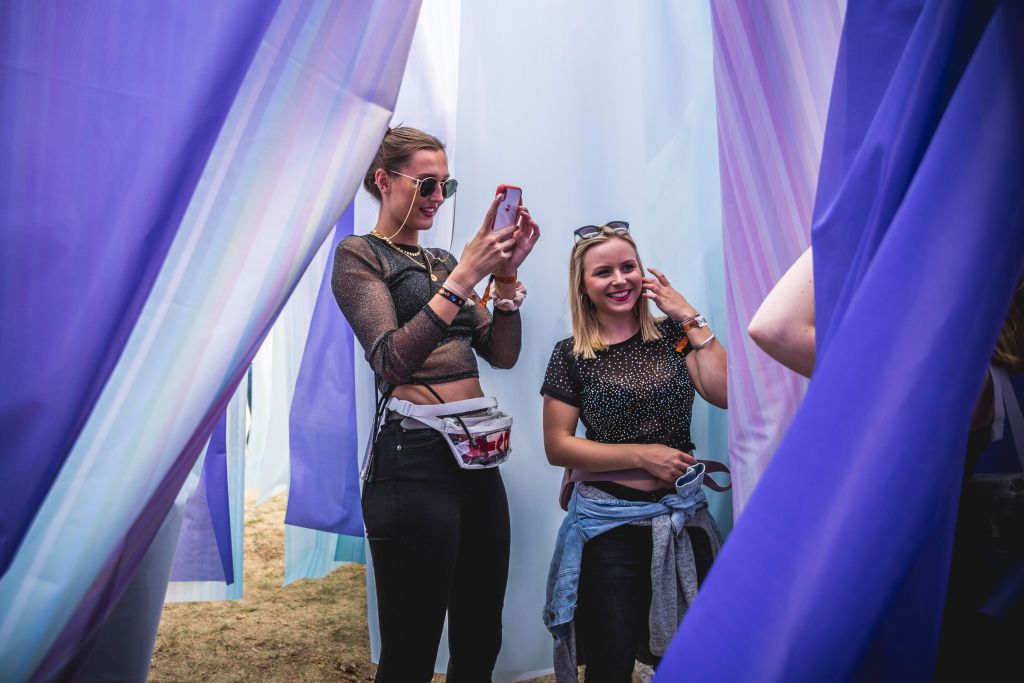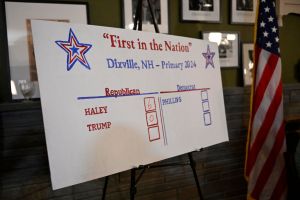When I went to the mall last week, I noticed all the women in their late teens and early twenties were wearing the same thing: long-sleeved tees with little prints, high-waisted jeans and canvas sneakers. It was a little surreal, because that’s how the girls in my preschool used to dress. Apparently, college students have collectively decided to dress like toddlers from the late Nineties.
According to pop-culture experts, many of my fellow millennials are feeling a little disoriented, too. We’re undergoing what they call a “vibe shift.” And sadly most of us aren’t going to make it.
As Allison P. Davis writes in The Cut:
This vibe-shift idea landed right as I was trying to figure out what hot-girl summer — or hot vaxx summer or the whoring Twenties or however you chose to label the expected triumphant return — was supposed to be and who I was supposed to be in it. I was in the middle of attempting to relearn which clothes I wore, how I pursued sex, what drugs I took and with whom, what music I danced to and where. I could accept that some of my old bars had closed (RIP, Frank’s, Kinfolk) and that a bunch of people I knew had babies (RIP, people who had babies), but I also felt that time had stopped in some ways.
That “stop” is the feeling of being left behind by a vibe shift. At least, I think that’s what she means. I can’t be sure, because I really have no idea what’s going on.
I mean, I feel like I should be morally outraged by the quip about having babies. But I’m not. Because I don’t know what any of the other words in that paragraph mean.
This happens pretty much every time I try to catch up with The Culture™ now. I used to feel a little out of the loop whenever I clicked on a BuzzFeed article. Now, scrolling through The Cut, it’s like they hired Hewlett-Packard to make the loop more user-friendly. Literally nothing makes sense. Even the headlines are baffling. Look:
- “Inside 3 Platonic Life Partnerships: There are pros and cons of committing to your best friend”
- “The Tabular Self: I saw the best minds of my generation being uploaded onto ‘second-brain’ apps”
- “Lee Pace Is Trolling You Back: The actor is enjoying his time as a thirst object”
- “The Divorced Mom Who Isn’t Quite Ready for Sexting Yet”
What does any of that mean? My eyes start to glaze over until I hit an article about sex toys or witchcraft, and then I give up.
I’m twenty-eight. I feel like I should have at least some vague idea what Ms. Davis is talking about. And yet her article reads like a dispatch from one of the strange dystopias that haunted my childhood. (Somehow, Samurai Jack sucking on a binky at a rave is less disturbing than the dad jeans trend.)
I’m sure a big part of it is the fact that I don’t have a smartphone or social media. I still haven’t seen the “WAP” music video. I have to google “rapper satan lapdance” when I want to reference Lil Nas X in an article. I only knew about the vibe shift article because it was linked in a newsletter from The Lamp, a Catholic literary magazine.
I’ve always prided myself on being a young fogey — like a short, hairy Basil Fawlty. Say what you want about the 1970s, but at least Basil knew what he was up against. The goons in tight pants and loose shirts had a clear objective: do drugs and have sex. Pretty straightforward.
Today? Today, trendies are “attempting to relearn which clothes I wore, how I pursued sex, what drugs I took and with whom,” etc. They don’t have fun: they worry about it.
It’s not that anyone likes the new “vibe” either. How could they? It doesn’t exist yet. They’re obsessed with fashions that exist in a future that will never come. Maybe that’s the whole point. As soon as you can define the new vibe, it’s over. So you just make something up and hope it catches on. According to Rod Dreher’s blog, some millennials are into puppy fetishism. Which is definitely unexpected.
Think about all the Americans who not only keep up with all of this nonsense but actually participate in some of it. Imagine having to balance the demands of your Platonic Life Partner with the guy dressed like a dog with whom you have sex, all while worrying about whether your mom is ever going to accidentally text you a nude selfie because you have the same first name as her boyfriend.
That sounds awful. It also sounds incredibly stressful.
And apparently it is. That seems to be why millennials are so committed to Covid hysteria. The fact that public live has basically stopped gave them a much-needed reprieve. According to Ms. Davis:
It was reassuring to think the pandemic had hit PAUSE on life, or at least put things into slo-mo. That while some of us were inside, or in the world but social distancing, or just keeping to ourselves as best we could, culture wasn’t really moving forward. In therapy, I talked about how, for the first time in years, I didn’t feel acute FOMO. It was nice that everyone was sort of stagnant, watching the same trash on Netflix.
As a young(ish) man with a wife and children and family and friends and hobbies and a career, I’m a little miffed that I spent the last two years dodging Covid regulations. And for what? Because a bunch of single, childless, Very Online persons needed a break from their FOMO?
Jean-Paul Sartre said, “Hell is other people.” I always thought that was nonsense. Maybe it resonates with some people — readers of The Cut, for instance. And that’s pretty sad.
It’s extra sad because it’s totally avoidable. You don’t have to be so unhappy. Honestly. Instead of worrying about actors and apps, maybe just, you know, get a life. It works for the rest of us, even if we’re not up on the latest “vibe.”


















